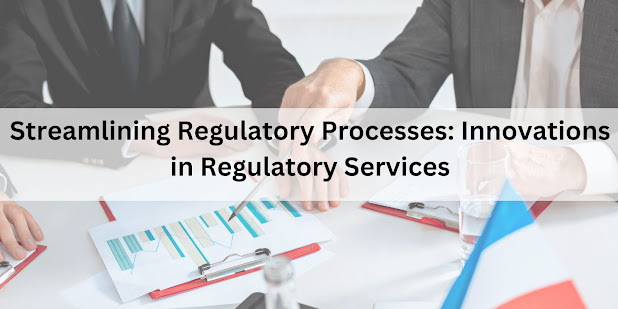Streamlining Regulatory Processes: Innovations in Regulatory Services
Innovations such as real-world evidence (RWE) and emerging data capture technologies are shaping clinical development, leading to next-generation therapies for complex or rare diseases. The pandemic has accelerated drug development processes and increased collaboration between regulatory agencies and the industry.
Regulators are adapting to these changes, calling for new approaches and harmonization among agencies. Regulatory affairs professionals play a crucial role in navigating these complexities, strategically impacting organizations and improving patient care. By embracing innovation and collaboration, they can enhance development strategies and deliver greater value to patients. The article explores how these innovations can streamline regulatory processes, accelerate the delivery of innovative treatments, and shape a more promising future for healthcare.
Real-World Evidence (RWE) and
Real-World Data (RWD)
Real-World Evidence and Real-World Data have emerged as powerful tools in regulatory decision-making. RWE refers to data collected from real-world settings, such as electronic health records, insurance claims, and patient registries. By leveraging RWE, regulatory agencies can gain insights into a product's safety and effectiveness in real-world patient populations, complementing traditional clinical trial data. This approach allows for more informed decisions on drug development, post-marketing surveillance, and label expansions.
Virtual First Approaches and
Decentralized Clinical Trials
Virtual First Approaches involve the use of virtual technologies and decentralized methods for conducting clinical trials. The Covid-19 pandemic accelerated the adoption of these approaches, allowing for faster patient recruitment regardless of their geographical location. The US FDA and the EMA issued guidance to support virtual trials, promoting flexibility and adaptability in clinical research.
Modern Technologies for Streamlined
Operations
Regulatory affairs departments have embraced modern technologies such as cloud computing, blockchain, and advanced data management systems. These technologies have streamlined regulatory operations, enhanced collaboration among stakeholders, and ensured data integrity and security throughout the regulatory submission process.
Big Data Analytics
The abundance of healthcare data has presented an opportunity for regulatory affairs to leverage Big Data Analytics. Analyzing large datasets quickly and efficiently allows for the identification of potential safety signals, trends, and insights that inform regulatory decisions. This data-driven approach can enhance patient outcomes and safety by identifying patterns that may not be apparent in smaller datasets.
Artificial Intelligence (AI) for
Automation and Decision-Making
Artificial Intelligence has revolutionized regulatory affairs by automating repetitive tasks, processing large volumes of data, and improving decision-making processes. AI-driven algorithms can analyze safety data, identify adverse events, and optimize regulatory submission strategies, leading to more efficient and accurate regulatory processes. Continuously learning algorithms provide unparalleled insights into diagnostics, treatment variability, and patient outcomes.
Digitalization and eSubmission
Pharmaceutical regulatory agencies worldwide have embraced digitalization and eSubmission, enabling the submission and review of regulatory documents in digital formats. This shift has reduced paperwork, accelerated processing times, and facilitated real-time communication between pharmaceutical companies and regulatory authorities.
Regulatory Harmonization for a Global
Framework
Efforts have been made to harmonize regulatory requirements and processes across different countries and regions. A streamlined global regulatory framework allows pharmaceutical companies to submit applications simultaneously to multiple markets, reducing redundancies and saving time and resources.
In the digital age, DDReg, the
regulatory service provider, has positioned itself as a pioneer in the
constantly evolving landscape of pharmaceutical regulations. With a relentless
commitment to staying up-to-date with advancements, DDReg has honed its ability
to deliver services of utmost quality while ensuring compliance with
associated regulations. By harnessing the power of innovation, DDReg has played
a pivotal role in helping numerous pharmaceutical companies obtain approvals
for their groundbreaking products.


Comments
Post a Comment